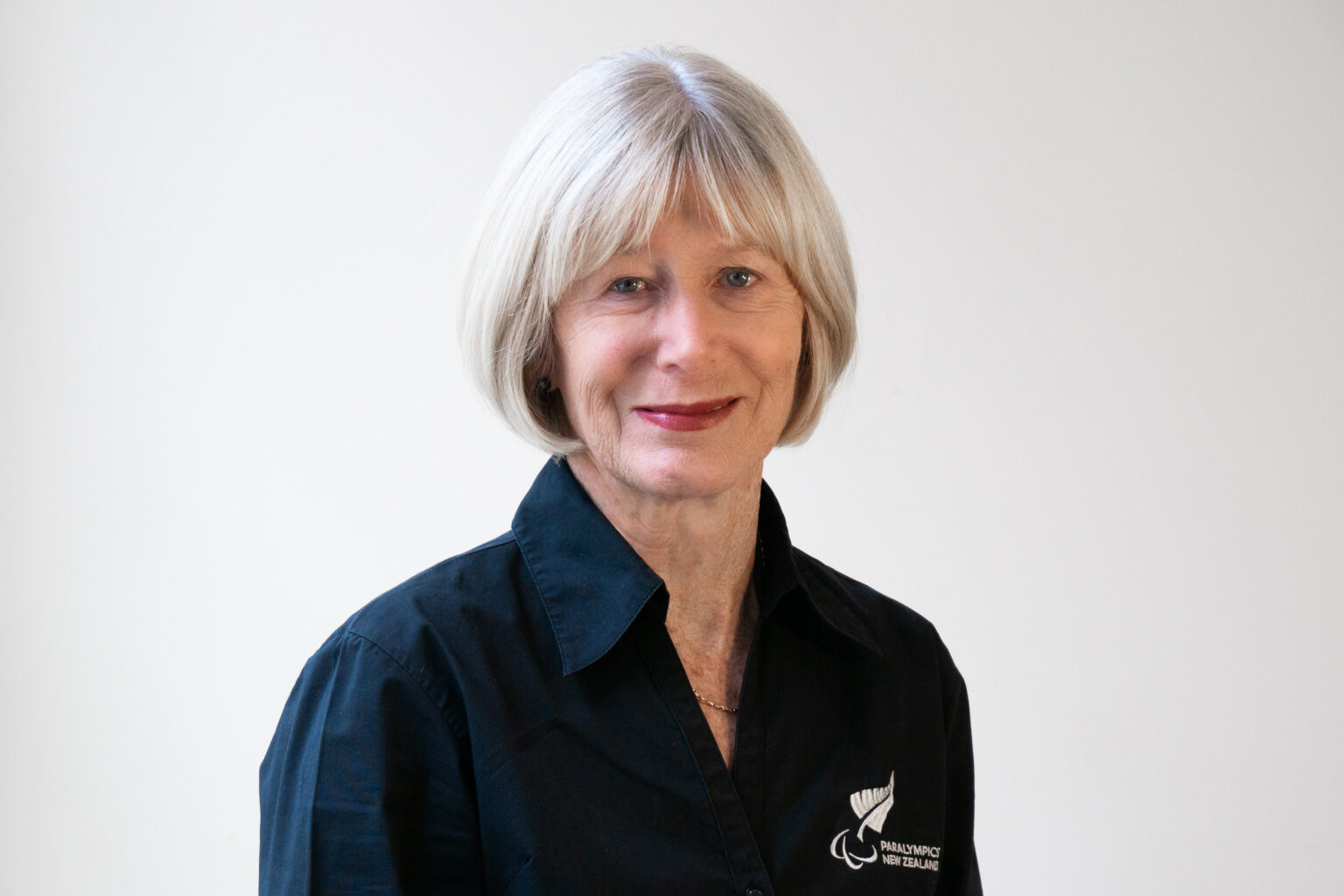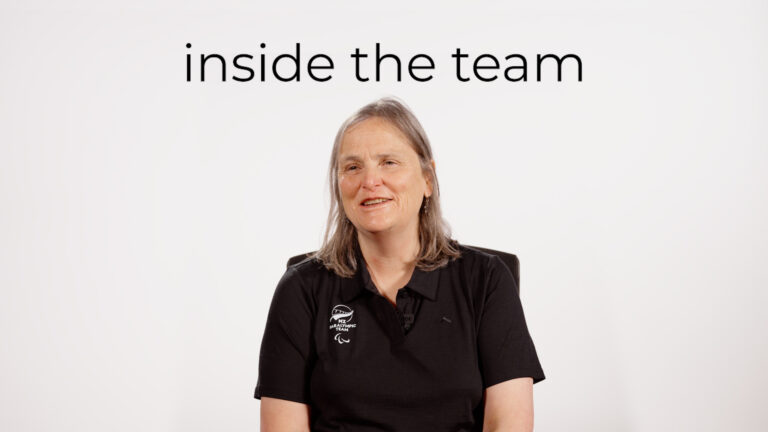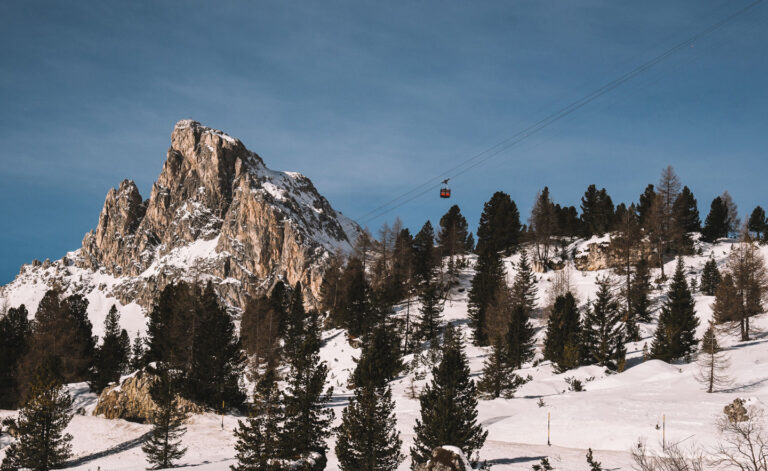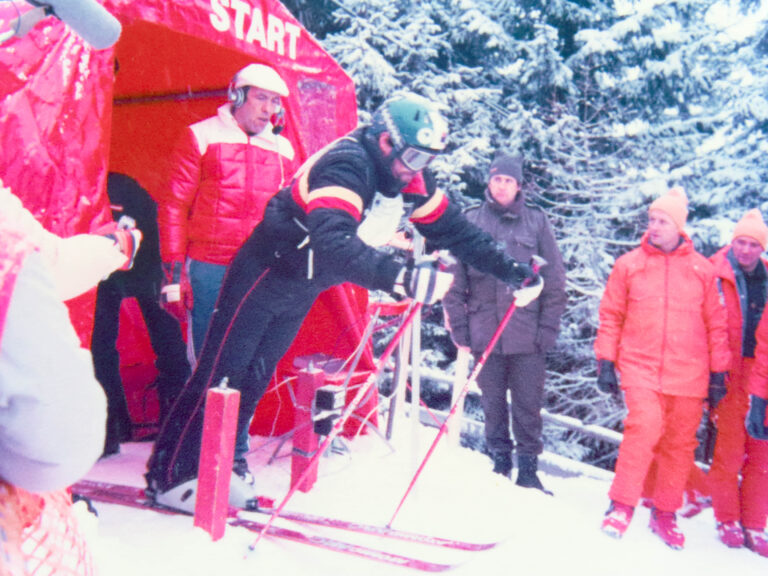The architect of New Zealand’s world-leading Classification Programme, Marguerite Christophers says she is “extremely privileged” and “humbled” after becoming appointed an Officer of the New Zealand Order of Merit (ONZM) for services to Para sport in the recent New Year Honours list.
A passionate and influential presence for 25 years in Para sport classification, Marguerite has played a huge role both nationally and internationally in making sense of the complex world of classification, which determines who is eligible to compete in Para sport and what class they can compete in.
Among her key achievements has been developing and implementing a national classification strategy in her 15 years working for Paralympics New Zealand (PNZ) and serving as global Head of Classification at World Triathlon.
Marguerite received the news she would be appointed as an Officer of the New Zealand Order of Merit while on a bike packing trip with her husband in the Molesworth Valley in Marlborough, six weeks prior to the official announcement.
“When they told me the news I was shaking, the hardest thing was my husband and I had to keep it a secret for six weeks,” said Maguerite, 70. “It is exciting that my work within the Paralympic Movement has been recognised in the New Year Honours.”
Born in Timaru, she moved with her family in her early teens to Wellington. Later qualifying as an occupational therapist, she specialised in neuro surgery working in a “groundbreaking unit” in Dunedin.
Developing an interest in cooking, she spent a period working in Europe as a Cordon Bleu chef but acknowledging on her return to New Zealand that the role “did not pay the bills” she moved back to occupational therapy, specialising in neuro development working in health and education.
Herself a nationally ranked marathon runner with a PB of 2:50 and good enough to compete internationally as a triathlete for New Zealand, she was presented an opportunity to work for the Halberg Foundation in 2000, providing sport opportunities for young people with disabilities.
“I jumped at taking the role because it meant I could engage my occupational therapy skills, my work as an athlete, and my passion for making a difference to people’s lives.” explains the mum to Benjamin and Amanda.
“I also started my journey in the Paralympic Movement by training as a national classifier for Para athletics. I was lucky in that I had a very supportive manager in Barry Hislop who was very influential in encouraging me to get involved in classification.”
From there, her involvement in classification quickly accelerated. In 2005 Marguerite trained as a cerebral palsy classifier in the US. Three years later she began training as a Para cycling classifier and while watching her son, Benjamin, compete at the 2008 World Triathlon Championships, she was offered the chance to become an international Para triathlon classifier. Two years later Marguerite took up the role of Head of Classification with World Triathlon.
Her rising status within classification led in 2009 to take on the Classification Manager role at PNZ. Landing the “dream job” under the then PNZ CE Fiona Allan, she started the role part time before later expanding to a full-time job.
Tasked with developing and implementing a national classification strategy, she said: “At the time I took on the role there were very few standardised classification principles across Para sport.
“I was proud that it developed into a world-leading programme. I was often able to share with the IPC (International Paralympic Committee) what we had set up in New Zealand and then other countries started adopting and using our strategy as a prototype to build classification systems and structures within their countries.”
Following the decision in 2010 to allow Para triathlon to make its Paralympic debut at the Rio 2016 Paralympic Games – the Kiwi was asked by World Triathlon to develop a new classification system for the sport. Working with a “wonderful team of specialists and researchers” she was instrumental in implementing a classification system for Para triathlon – another source of immense pride.
Working today in an advisory capacity for World Triathlon she believes a good classifier needs good people skills.
So, given her distinguished career does she have any personal highlights?
“To be on the start boat at the Rio Paralympic Games for the first ever Para triathlon (at a Paralympic Games) was a very special moment, as was receiving (in 2023) the inaugural IPC Classification Recognition Award,” she explains. “Now, I can add to those highlights my appointment as an Officer of the NZ Order of Merit.”
Keen to acknowledge the influential role that four people in particular have played in her career, Marguerite pays tribute to the aforementioned Barry Hislop and Fiona Allan as well as Sir Murray Halberg for “his vision to enable young disabled people to play sport” and her husband, Herb, for being a “rock of support” throughout her career.
Relocating from Wellington to Christchurch three years ago, she currently fills in her days by continuing to keep fit by cycling, walking, spending time with her grand kids – Hugo and Frankie – and travelling. She hopes that 2025 will present a fresh opportunity to “fill her bucket” and find work where she can make a difference.
Yet whatever the future brings, Marguerite acknowledges the colossal role Para sport has played in her life.
“My journey in the Paralympic Movement has seen me develop both personally and professionally,” she says. “It has enabled me to contribute towards changing lives, and I feel very proud to have worked with amazing athletes who have trusted me to share their stories. I have worked with many wonderful teams which has given me the chance to work in many countries. I feel very proud to have worked in the Paralympic Movement.”






























